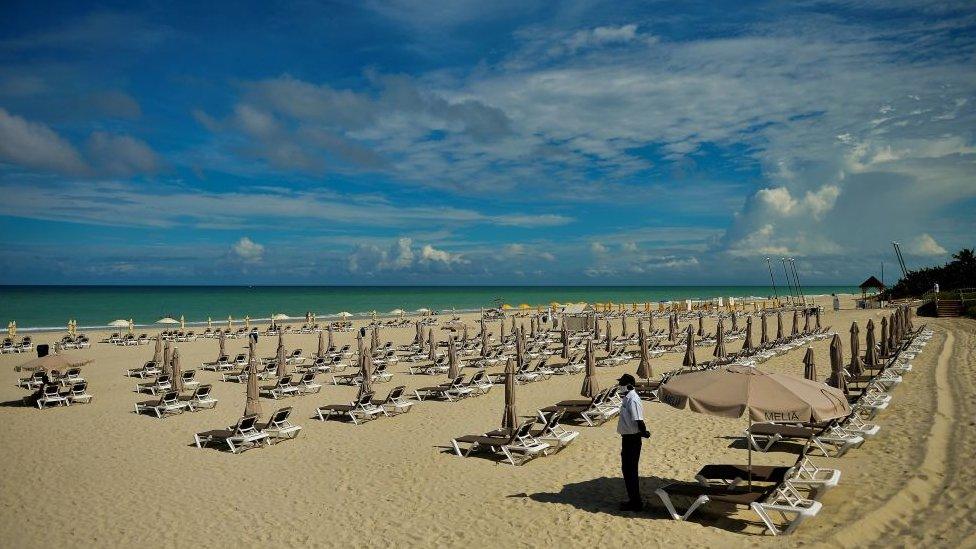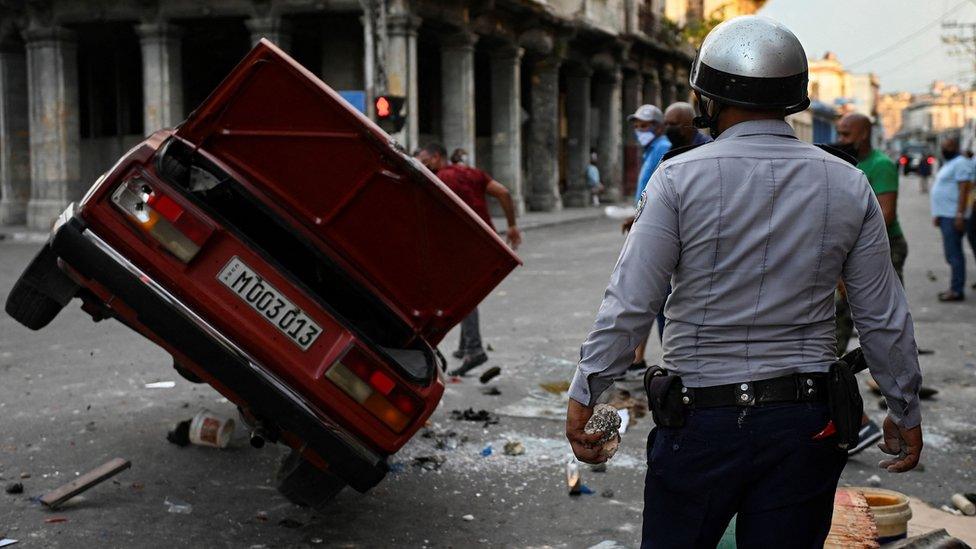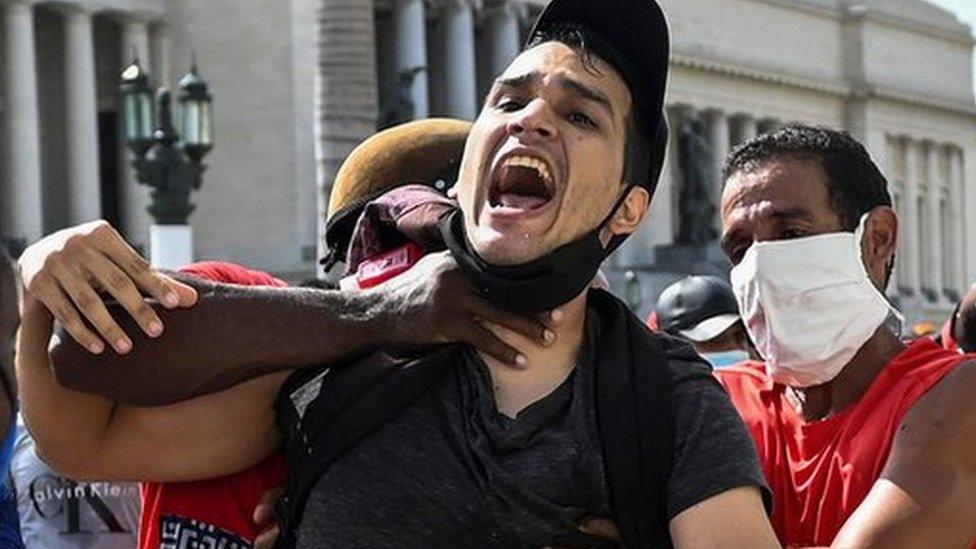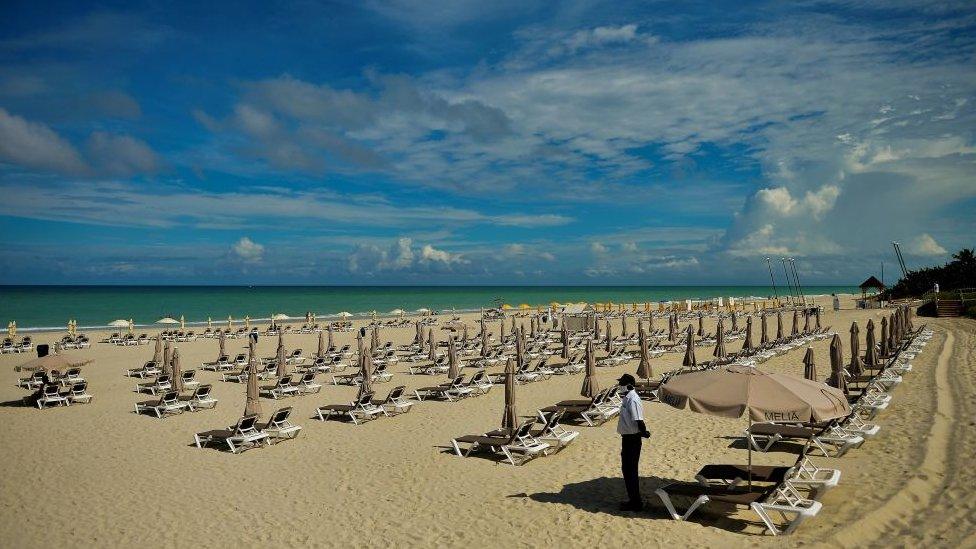Cuba allows small and medium-sized private businesses
- Published

Many private businesses work in Cuba's tourist industry which has been hit hard by the pandemic
Cuba's communist government has legalised small and medium-sized private businesses in the wake of mass anti-government protests last month.
Under the new rules, enterprises with up to 100 employees will be allowed.
President President Miguel Díaz-Canel said Cuba was taking firm steps to update its economic model.
Critics say the government's plans have been accelerated because of July's protests, when thousands turned out to complain of economic ruin.
Demonstrators condemned the handling of the coronavirus pandemic and demanded political change.
Dozens were arrested nationwide and that least one man died in the unrest.
Friday's decision is seen as a major shift in government policy on the island, where state-run companies are the norm.
The protests came amid a severe economic crisis.
In July, the authorities said they would allow travellers arriving in the country to bring in food, medicine and other essentials without paying import duties.
Scrapping the import duties had been suggested by some Cubans as a way to ease the shortages of medicines and food.
Tourism, one of the most important sectors, has been devastated by global restrictions on travel during the pandemic.
Sugar, which is mostly exported, is another key earner for Cuba. But this year's harvest has been much worse than expected.
As a result, the government's reserves of foreign currency are depleted, meaning it cannot buy imported goods to supplement shortages, as it would normally do.
Cuba has blamed the US and its economic sanctions for the protests and Cuba's wider problems.
Thousands took to the streets in protest over the government's handling of coronavirus and the economy
- Published14 July 2021

- Published14 July 2021

- Published7 February 2021
